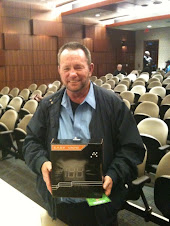Lansing -- Michigan's two-year-old law allowing the use of marijuana for medical purposes is leaving communities, courts, patients and police locked in disputes over what is legal and what isn't.
Many patients who have the state's OK to use marijuana to ease their pain from conditions ranging from cancer to Crohn's disease have been arrested and others have been fired because of different interpretations of the law approved by Michigan voters in late 2008. Courts face a rash of medical marijuana cases, with the law raising so many questions one state appeals court judge described reading it as a "maze."
Local governments are jumping in and passing their own ordinances, mostly trying to limit, ban or regulate a wave of businesses popping up to grow and sell the drug.
Michigan isn't alone in trying to sort out hazy medical marijuana laws. Fourteen other states have similar statutes — prompting raids and debate over local regulations in California, disputes over which doctors can recommend pot in Colorado and fights over proposed regulations in New Jersey.
Many of the clashes are between medical marijuana advocates who say they're acting within the law and police who say they aren't. Adding to the tension is federal law that continues to ban the use and possession of marijuana. Although it won't be a top priority for lawmakers in a state swamped by economic and state government budget problems, Michigan's next Legislature likely will devote some time to clarifying the law.
A class on legal issues is a staple at Med Grow Cannabis College in Southfield, one of the few medical marijuana trade schools in the nation. Nick Tennant, who last year opened up the trade school in suburban Detroit, said the goal of the class is to provide students some clarity about a law that has gray areas.
"A lot of people want definitive answers," Tennant, 25, said. "It's just hard, because sometimes the attorneys can't really give a definitive answer. They can give almost a 'best practices, here's how you stay out of trouble, don't raise your risk tolerance in this gray area' type of thing."
The school also provides students with instruction on the medical and horticultural aspects of growing pot for medicinal use.
"We don't want the people and the public to be afraid of us or to think we're drug dealers, because that's really a popular misconception as well. We're here to help," said Travis Williams, a 38-year-old Detroiter who took classes at the school and now provides marijuana he grows himself to patients.
Michigan's more than 45,000 licensed medical marijuana patients can possess up to 2 1/2 ounces of usable marijuana and have up to 12 plants kept in an enclosed, locked facility — or have a registered caregiver grow the drug for them.
Some police agencies want a better system to verify the authenticity of authorization cards. Physicians must certify patients would benefit from the pain-reducing aspects of marijuana, but it's left to the patients to register with the state and to self-regulate the amount and quality of the drug they take.
"There is absolutely no connection to medicine and what's going on with medical marijuana right now," said Oakland County Sheriff Mike Bouchard. "You don't have a required patient-doctor relationship. You don't go to a state-licensed, inspected and regulated facility like a pharmacy. ... It's creating already a lot of problems and a lot of misconceptions."
Advocates of medical marijuana say nothing in the law prohibits dispensaries and collective growing facilities, and that communities are ignoring the will of Michigan voters by cracking down on those businesses. Advocates of the law say it's broad by design to protect a wide range of activities.
Many Michigan communities have said state law isn't clear or is largely silent on how the drug can be grown and distributed by anyone other than patients or caregivers, or how plants and seeds can be bought in the first place.
Oakland County narcotics agents raided two medical marijuana dispensaries this summer after they sold the drug to deputies carrying phony state ID cards. The city of Lansing recently adopted an ordinance banning the opening of any new medical marijuana businesses until July, in hopes of buying enough time for local officials to draft rules for their operation.
The American Civil Liberties Union has sued the southeast Michigan cities of Livonia, Birmingham and Bloomfield Hills and joined a lawsuit against the west Michigan city of Wyoming over policies it says effectively ban the use of medical marijuana.
Local governments counter that they are trying to make sure illegal drug dealing and other crimes don't take place in the absence of a clear state law.
Individual patients also have run into trouble with police or employers. Joseph Casias, authorized by the state to use marijuana because of pain associated with cancer, lost his job at a Wal-Mart store in Battle Creek in 2009 after testing positive for pot. He's battling the company in court.
Michigan Court of Appeals Judge Peter O'Connell wrote in a September opinion that the law is susceptible to multiple interpretations and that reading it "carelessly or out of context could result in jail or prison time for many of our citizens." He urged state officials to clear up contradictions and vague areas in the voter-approved law.
Ari Adler, a spokesman for incoming Republican House Speaker Jase Bolger, said "the level of confusion" that exists related to the law likely will prompt the new Legislature to address it during the 2011-12 session.
Householder reported from Southfield, Mich.
Source: Associated Press (Wire)
Author: Tim Martin and Mike Householder, Associated Press
Published: December 22, 2010
Copyright: 2010 The Associated Press




